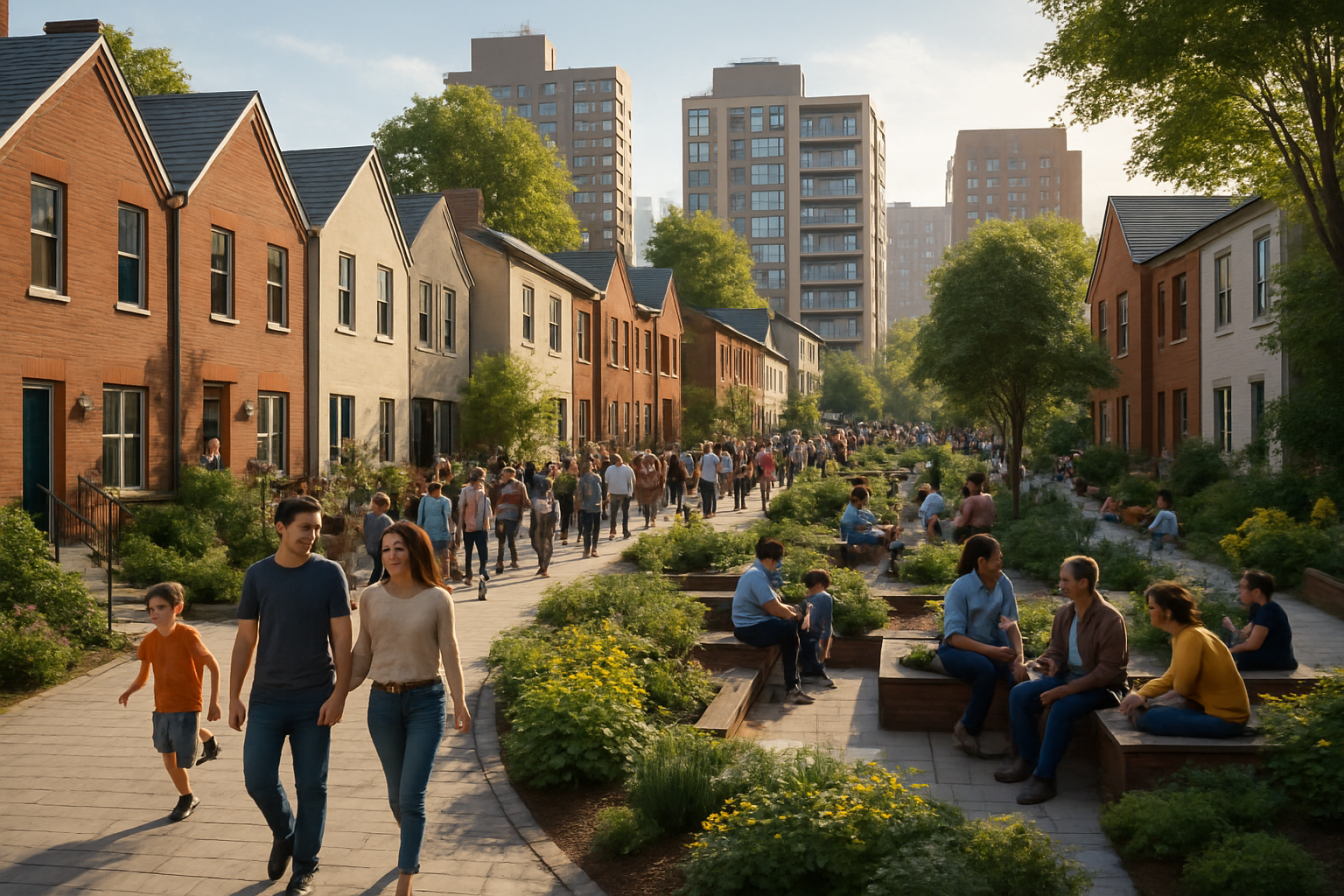Neolocalism: Redefining Community in the Digital Age
The quest for local identity is reshaping our communities in unexpected ways. As global connectivity increases, a counterintuitive trend is emerging: people are seeking stronger connections to their immediate surroundings. This phenomenon, known as neolocalism, is transforming how we interact with our neighborhoods, local businesses, and fellow community members. Read below to explore how this movement is redefining our sense of place and belonging in the digital era.

The Roots of Neolocalism
The concept of neolocalism isn’t entirely new, but its current manifestation is distinctly modern. It draws inspiration from earlier localist movements, such as the back-to-the-land trend of the 1960s and 1970s. However, today’s neolocalism is less about rejecting modernity and more about integrating local values into our contemporary lifestyles.
Sociologists trace the rise of neolocalism to the late 20th century, as a reaction to the rapid pace of globalization. As multinational corporations began to dominate local markets and cultural homogenization seemed inevitable, many people felt a growing sense of placelessness. This discomfort with the loss of local identity laid the groundwork for neolocalism’s emergence.
Digital Connectivity Fueling Local Connections
Ironically, the very technologies that enable global connectivity are now being leveraged to strengthen local ties. Social media platforms and mobile apps are increasingly being used to organize neighborhood events, support local businesses, and facilitate community engagement. This digital-local fusion is a hallmark of neolocalism, demonstrating how modern tools can be repurposed to enhance our sense of place.
Research shows that online neighborhood groups and local digital marketplaces are flourishing. These platforms allow residents to share resources, organize community initiatives, and support local economies in ways that were previously challenging to coordinate on a large scale.
The Economic Impact of Neolocalism
One of the most significant manifestations of neolocalism is its effect on local economies. There’s a growing preference for locally sourced products, artisanal goods, and community-based services. This shift is not just about nostalgia; it’s a conscious effort to create more sustainable and resilient local economic systems.
Studies indicate that money spent at local businesses has a multiplier effect, circulating within the community and generating more economic activity than money spent at large chain stores. This realization has led to initiatives like buy local campaigns and the creation of local currencies in some communities, further reinforcing the neolocalist ethos.
Neolocalism and Urban Planning
The neolocalist movement is also influencing how we design and develop our cities. Urban planners are increasingly incorporating principles of neolocalism into their work, focusing on creating walkable neighborhoods, mixed-use developments, and public spaces that foster community interaction.
This approach marks a significant departure from the car-centric, suburban sprawl that characterized much of 20th-century urban development. Instead, neolocalism promotes a return to human-scale architecture and city planning that prioritizes local character and community needs.
Challenges and Criticisms of Neolocalism
While neolocalism offers many benefits, it’s not without its challenges and critics. Some argue that an excessive focus on local identity can lead to parochialism and exclusivity, potentially exacerbating social divisions. There’s also concern that neolocalism might inadvertently contribute to gentrification, as the celebration of local character can make neighborhoods more attractive to outsiders and drive up property values.
Additionally, there’s the question of authenticity. As neolocalism gains popularity, there’s a risk of it being co-opted by commercial interests, leading to a commodification of local culture that paradoxically undermines the very uniqueness it seeks to preserve.
The Future of Neolocalism
As we look to the future, neolocalism appears poised to play an increasingly important role in shaping our communities. The COVID-19 pandemic has only accelerated this trend, as lockdowns and travel restrictions have forced many to rediscover their local areas and appreciate the importance of strong community ties.
The challenge moving forward will be to balance the benefits of neolocalism with the realities of our globalized world. Finding ways to celebrate local identity without falling into isolationism or exclusivity will be crucial. As neolocalism evolves, it has the potential to create more resilient, sustainable, and connected communities that are better equipped to face the challenges of the 21st century.






